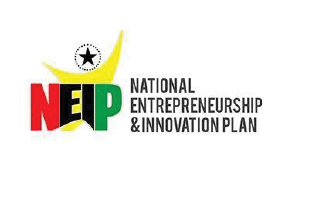 THE ROLE OF EDUCATIONAL INSTITUTIONS IN FOSTERING ENTREPRENEURSHIP DEVELOPMENT
THE ROLE OF EDUCATIONAL INSTITUTIONS IN FOSTERING ENTREPRENEURSHIP DEVELOPMENT
Mr. Chairman, fellow speakers and panelists, distinguished invited guests, I bring you greetings from a very chilly Kumasi! YACEDX Ghana, congratulations on an already successful African Magnates Summit 2019! When I told my 10-year old daughter that I was preparing a speech on ‘the role of educational institutions in fostering entrepreneurship development’, she looked at me shocked. She said to me ‘you people really stress yourselves; you say glucose instead of sugar and you say educational institutions instead of schools’. Her comment reminded me yet again to keep things simple, and so I promise to keep this speech simple with little or no ‘big’ words.
 Speaking of simple, one of the roles some schools play in promoting entrepreneurship is to teach it to their students. Have you ever been in a classroom where you did not understand a word of what the teacher was saying even though he/she was speaking in a language you understood? Oh it has happened to me several times! And by the way, this does not even happen only in the classroom; try attending a conference on entrepreneurship. You will hear words like ‘ideation’, ‘sustainability’, ‘magnates’, etc.
Speaking of simple, one of the roles some schools play in promoting entrepreneurship is to teach it to their students. Have you ever been in a classroom where you did not understand a word of what the teacher was saying even though he/she was speaking in a language you understood? Oh it has happened to me several times! And by the way, this does not even happen only in the classroom; try attending a conference on entrepreneurship. You will hear words like ‘ideation’, ‘sustainability’, ‘magnates’, etc.
Once when I started taking classes on how to run my own business, I took my husband along to a certain event. After the event, I was busy networking with others when I noticed he was in a deep conversation with one of the organisers. Later, I asked him what the organizer was saying to him and he responded “all I heard was ‘ecosystem’”. To this day, we still joke about the word ecosystem. My point is, we really need to breakdown the entrepreneurship topics we are teaching in order for our students to understand. I have recently founded Fab Hub Ashanti which is a shared office and event space for women in business. Last month we hosted 40 women under the National Entrepreneurship and Innovation Program run by the Ministry of Business Development. As soon as we realized that some of our participants were not literate in English we agreed to teach the entire curriculum in Twi and it was amazing to hear the feedback from some of the participants. Frankly, what is the point in attending a class if you cannot understand what is being taught? It will be great if the words used to explain to students is broken down into simple English, Twi, Igbo or whichever language is applicable.



Mr. Chairman, I started learning about entrepreneurship both formally and informally as soon as I decided it was time to quit my job to focus on my own business. Yes, I have sat in several classrooms to seek knowledge which I apply to my business as much as possible. Currently, I am part of the second group of 200 Africans around the world studying under the African Women Entrepreneurship Cooperative. We take classes together and are given assignments and group work just like a typical school. However, the biggest value in this and many of the courses I have taken has been the growth in my network. It has been an amazing opportunity to connect with entrepreneurs who have been there and done that. I also meet others who are now finding their feet in entrepreneurship just like me or another group of people who know they want to start something on their own but do not know how to go about it. All these categories of people provide mentorship to me directly or indirectly.
Further, as part of my work as Founder of The Fabulous Woman Network, I have interviewed over 200 women – many of their stories have been about business and how they overcame challenges to succeed. Because of their stories, when I personally face challenges during my business I remember their advice that the journey is not an easy one and then keep moving forward. Sometimes I sleep in tears, other times I wake up panicking; but because I am surrounded by a network of amazing mentors who have been through worse and are still progressing, I say a prayer to my Jesus and keep on moving forward. So how can schools help their students to improve their network and hence opportunities to be mentored? As much as possible, they can invite entrepreneurs to come and share real experiences with the students to complement the teaching done from text books.
Imagine an Abossey Okai or Suame Magazine spare parts dealer coming to teach students how to trade. While they interact with these students they will learn valuable facts including the fact that starting and failing in entrepreneurship is a possibility. This is why I strongly believe in being mentored. As schools teaching both children and adults about entrepreneurship, the sort of mentors you provide for them will go a long way. Mentors do not only provide inspiration, they also provide direction.



Ladies and gentlemen, I have been interacting with many youth from a certain community, helping them develop entrepreneurial skills so they can start and grow their own businesses. One day, I asked a class of about 10 participants what they each wanted to be; 2 wanted to be photographers, another wanted to produce and sell bio gas, all the rest wanted to be fashion designers. And just to clarify, when they said ‘fashion designer’ they meant to sew clothes on demand. Of course I have nothing against seamstresses and tailors. Sister Abena has been sewing my African print dresses for years and I appreciate her very much.
However, on this particular day I kept wondering why majority of the participants wanted to go into fashion designing. We delved deeper into their reasons and realized that for most of them dressmaking and tailoring is the most popular vocation they knew. So then I started challenging them to not only focus on making clothes but to look at the bigger picture of the clothing industry. For instance, what are the needs of even the existing fashion designers and how can they solve some of these to make money and employ other people? I wanted them to consider other opportunities they may not be exposed to.
Now for schools, how about a school farm on campus where students are taught to grow some of the crops they eat and not only that, but how to sell some and invest the money as well? I believe a lot of us are limited in our thinking because we are not exposed to what else is possible out there. This is where our schools can assist greatly; an example is to send students on field trips or encourage internships in different organisations. Imagine a school trip to a recording studio to find out how music is made!
During my Young African Leadership Initiative training at GIMPA in 2016, I had opportunities to visit several businesses, I will never forget our visit to Makola market to interact with the market women. But of course, schools may not have the capacity to expose students to much and so families also play a huge role in giving family members experiences and exposure. And thanks to the internet, a lot can be learnt and practiced at home or in the classroom if resources do not make a visit possible yet.
 YACEDX team, I know you did not ask me to talk about the role of family and for that matter parents but I believe I must add this next point. You see, I know for a fact that the people in one’s family such as brothers, sisters, uncles, aunts and parents start the education process for children even before they begin school. And so children typically learn from their families and apply what they have learned in their behavior, whether we intend for them to or not. A lady friend recently told me about how growing up, she noticed all her elderly siblings were buying lands and building small apartments or shops for rent. And so naturally when she also started earning allowances, she started saving and eventually got enough money to buy a small parcel of land. She then started building small shops. Little by little, this lady has built shops and apartments all around town and rented these to people. She has other businesses too of course and so she earns what we call multiple streams of income.
YACEDX team, I know you did not ask me to talk about the role of family and for that matter parents but I believe I must add this next point. You see, I know for a fact that the people in one’s family such as brothers, sisters, uncles, aunts and parents start the education process for children even before they begin school. And so children typically learn from their families and apply what they have learned in their behavior, whether we intend for them to or not. A lady friend recently told me about how growing up, she noticed all her elderly siblings were buying lands and building small apartments or shops for rent. And so naturally when she also started earning allowances, she started saving and eventually got enough money to buy a small parcel of land. She then started building small shops. Little by little, this lady has built shops and apartments all around town and rented these to people. She has other businesses too of course and so she earns what we call multiple streams of income.
Unfortunately, many formally educated adults miss out on this kind of learning because we are taught to only focus on our school work, make ‘As’ and get employed. Many of us know how to spend money very well, but only a few know how to make money. It will be great if our schools can teach us how to make money but really I believe family is the first and foremost teacher for this kind of practical education on entrepreneurship.
Ladies and gentlemen, I have given you my opinion on the role of educational institutions in fostering entrepreneurship development. I have mentioned that in my opinion, schools should use simple language to teach entrepreneurship, provide mentorship and give exposure to students. I even chipped in the role of families in teaching students to practice entrepreneurship at home.
The final role I would like to add is this; please let us make learning fun. I remember one professor I was priviledged to encounter a couple of years ago. The minute she entered the class she started playing music and this made the class really lively. Another lecturer also turned the subject into a debate while yet another made us create stories through art. Some of the best classes I remember either involved dancing, singing, fun activities or loads of laughter. I think learning in itself is an experience that must be made worthwhile. And so before I return to my seat, shall we all be on our feet. We are going to dance while we go round shaking hands with people, you know like how we do in church!



Thank you!













